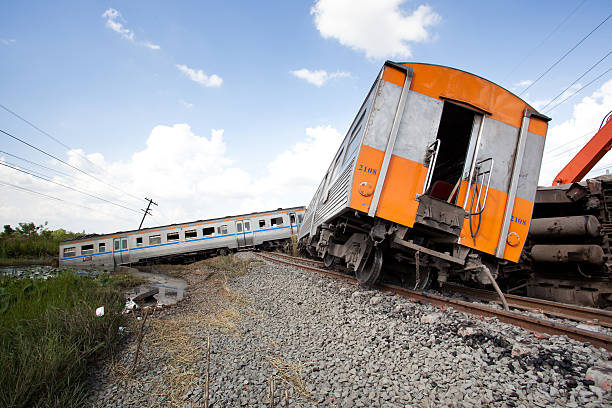Safe and Incident-Free: Ten-Car Train Derailment in Northern Cook, Minnesota

Officials in northern Minnesota have confirmed that a recent train derailment resulted in no injuries or hazardous material spills.
The incident, involving ten Canadian National Railway cars, occurred just before 8:30 p.m. on July 17, 2023, in a rural and unpopulated area approximately 6 miles (10 kilometers) north of Cook, Minnesota, as reported in a news release by the St. Louis County Sheriff’s Office. Firefighters and sheriff’s deputies arrived and found that only five of the derailed cars had tipped over.
Fortunately, despite two of the derailed cars containing liquefied propane and butane, no evidence of any spills was found, as confirmed by both the sheriff’s office and Canadian Railway officials.
Initially reported as nine derailed cars, Canadian Railway spokesman Jonathan Abecassis clarified on Tuesday that the actual number was ten. The investigation into the cause of the derailment is currently underway, and cleanup operations are ongoing. However, no estimated time for reopening the rail line to traffic has been provided at this stage. In response to the incident, the railway issued a statement extending their apologies for any inconvenience caused to local residents.
This recent derailment comes on the heels of another incident in southwest Minnesota less than four months ago, where a BNSF train derailed, leading to the evacuation of a small town due to several leaking and burning ethanol cars. The damages from that March 30 crash amounted to approximately $1.9 million to the tracks and rail equipment, with about 800 residents in Raymond temporarily displaced from their homes.
Given the recurrence of derailments in recent times, railroad safety has become a nationwide concern. The February train wreck near East Palestine, Ohio, which resulted in a fiery accident, further added to the calls for increased safety measures. Consequently, Congress is currently deliberating on implementing new safety requirements for freight railroads. Even before such regulations, many rail operators have already committed to making operational changes to enhance safety. Additionally, federal regulators have urged railroads to adopt further precautions in their operations to prevent future derailments.
















